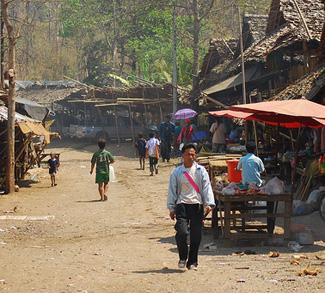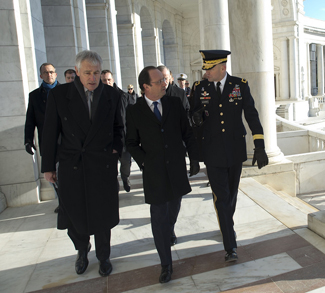Summary
This week’s Green Zone bombings may have been an ‘inside job’ that was aimed at embarrassing the Iraqi government ahead of January elections.
Analysis
At first glance, the truck bombings on Baghdad’s finance and foreign ministries resemble sectarian or Al Qaeda operations, however circumstances surrounding the bombing suggest that this is not the case. High levels of security around the bombing sights, the lack of any claims of responsibility, and the political nature of the targets all suggest that the attacks originated from within the Iraqi political establishment.
While terrorism by definition entails violence for political ends, the end sought in this case may differ from previous bombings. It seems that the goal of these attacks was not to stir up sectarian animosities or undermine the political system’s legitimacy, but rather to influence the result of next January’s parliamentary elections. The emergence of this kind of politically motivated violence should not come as too much of a surprise given the vulnerability of Iraq’s democratic institutions and the pervasiveness of armed militias in Iraq.
High-profile attacks on government targets in Baghdad represent an embarrassment for the Al-Maliki government. Moreover, the political nature of the targets mitigate against the possibility of re-igniting widespread sectarian violence. Thus, the attacks smack of a would-be political challenger with links to militia or resistance groups, a group intent on discrediting the government ahead of January elections.
To this end, it certainly helps that the present Iraqi government has been busy dismantling blast walls in Baghdad and stressing security gains made in the wake of withdrawing American forces. This week’s Baghdad attacks managed to strike at the very core of Al-Maliki’s progress credentials.
Although the Iraqi government publically maintains that recent attacks were sectarian in nature, there can be no doubt that officials in Baghdad are well aware of the possibility it was an inside job. The Green Zone, while undergoing relaxing security restrictions, remains an exceedingly difficult area to get anywhere close to. The only way terrorists could successfully get two trucks so close would be either gross negligence or collusion with Iraqi security forces.
According to Iraqi government spokesman Qassim Atta, the trucks should not have been authorized to even approach the center of the city, let alone get so close to government ministries. Under these suspicious circumstances, the government has detained eleven security and army officers under the pretense of negligence. It is more likely that they are being questioned on links to militant groups or other political blocs.
It is worth noting that Muqtada al-Sadr is currently in Iran studying to become an Ayatollah, a qualification that will greatly boost his electoral fortunes in Iraq. Al-Sadr has both a motive and the militant connections needed to execute such an attack. If al-Sadr were to organize a series of attacks in Baghdad, he could eventually make his triumphant return to Iraq and paint himself redeemer of a beleaguered and faltering central government. To do so, however, would require Sunni allies to boost his national unity credentials and offset perceptions that he’s too close to Iran.
As for the impact on US forces in Iraq, despite a string of official denials, increasing violence could herald a ‘soft’ re-deployment in urban centers. That is, one that occurs without any large public announcements. As was the case with US operations in Helmand province in Afghanistan, US forces can be crucial in providing a stable enough security situation to hold successful elections. Moreover, January elections hold immense symbolic value for Washington, possibly affording the Obama administration an opportunity to save face in their withdrawal from Iraq.



